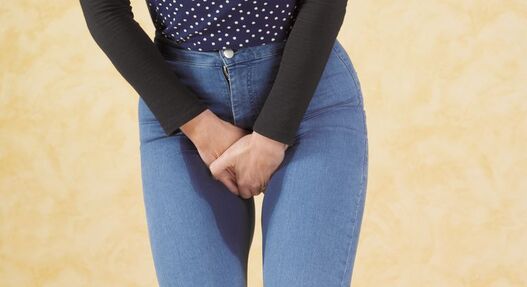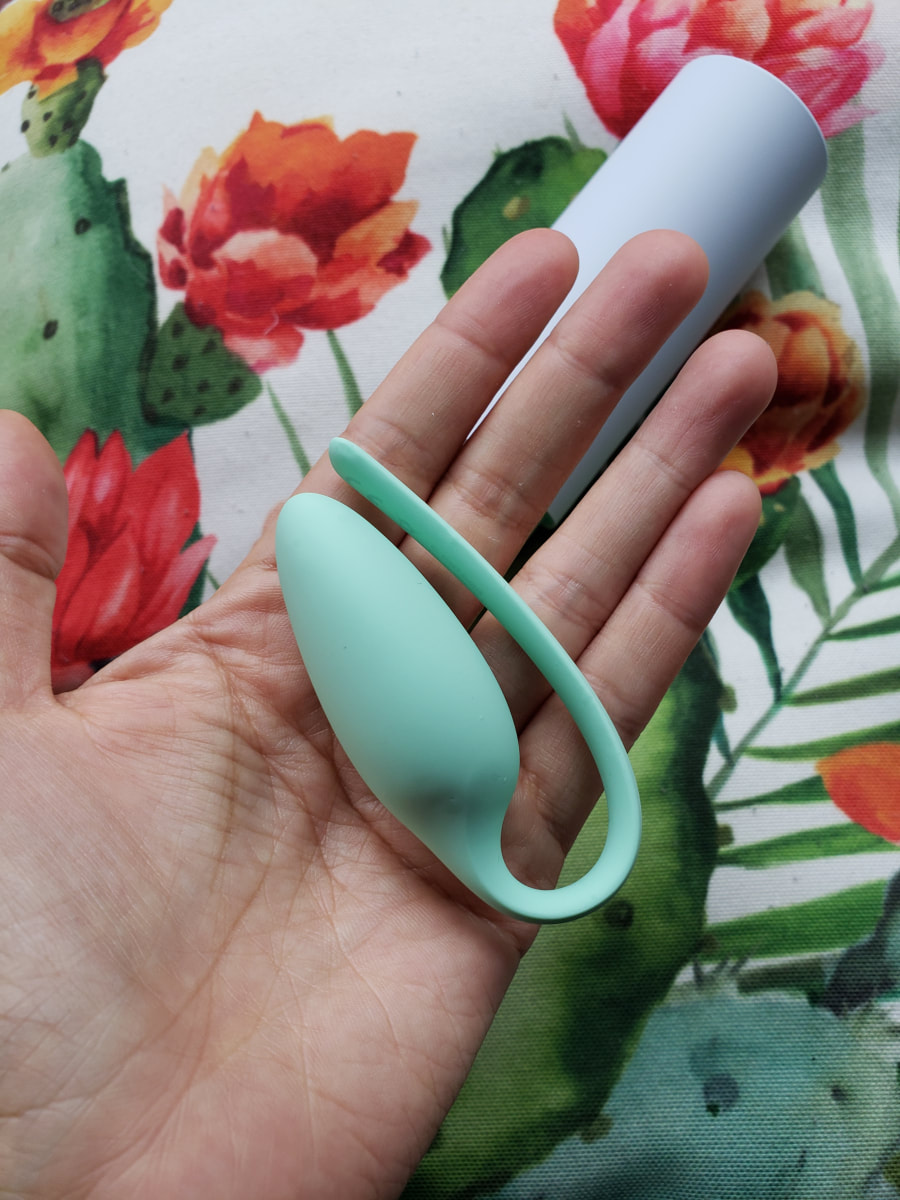 Urine Flow Starts before You Can Stop it Urine Flow Starts before You Can Stop it A discussion on reproductive organs, sex or peeing is a taboo subject despite their prominence in our lives. At school and at home we simply hesitate to enlighten our children on sex education knowingly or unknowingly. With the society shunning away from all of this do you think that an open discussion on incontinence would be an exception. Urinary leakage is a common problem faced by millions of women daily whose actual plight remains in darkness as they are too ashamed to speak it out. You might be enjoying a hearty laugh with your bestie and a small trickle of liquid between your legs happens, at the theatre while watching a movie you have the urge to urinate but you don’t make it to the restroom in time or while going on a drive you ask to stop the car but everything is over before the car stops-these are some day-to-day scenarios that affect the quality of life of those individuals who suffer from urinary incontinence-difficulty in controlling one’s bladder irrespective of the number of prior toilet visits made! Attacking More Women than Men Women are twice at a risk of suffering from urinary incontinence owing to the structure of the urinary tract. Stress applied on the urinary tract during pregnancy and childbirth, constipation, prolonged cough, pelvic surgery, weakening of the urethra (tube through which urine is emptied out of the body) due to ageing and loss of estrogen during menopause. Quite often during pregnancy the number of visits to the bathroom increases drastically-the unborn baby puts pressure on the pelvic floor muscle, bladder and urethra. Such pressure increases your urge to urinate more often. So, pregnancy and childbirth (caesarian or normal delivery) puts an individual at an increased rate of stress incontinence (leakage of urine while coughing, laughing, sneezing or doing any activity that puts pressure on the bladder) which disappears within a few weeks. Apart from stress incontinence we do have urge incontinence (an urge to pass urine frequently followed by involuntary loss of urine) and mixed incontinence (combination of stress and urge incontinence). Pregnancy is a major cause and apart from this, menopause too is a great risk factor for bladder incontinence. Almost 50% women report incontinence (urge incontinence) issues after their last period owing to two things-lack of estrogen thins the urethra lining or due to muscle weakness. Ageing muscles too are a root cause-above the age of 70 almost 17% women and 12% men have some incontinence (https://www.theguardian.com/lifeandstyle/2019/jun/02/pelvic-floor-bladder-urinary-leakage-incontinence-women-bluetooth-elvie). Old Methods in New Bottles No problem comes without a solution and the major concern here is that, how effective is the solution? How many of you have been practicing Kegel exercises during pregnancy or even as a part of a regular lifestyle? If your answer is affirmative then there is minimal possibility of suffering from incontinence-related issues. But we don’t have the patience nor the time to practice these simple exercises that can help us avoid long-term complications-just squeezing and releasing the muscles you use to start and stop the flow of urine. Hold the contraction for five seconds before releasing and do three sets of 10 Kegel exercises everyday. By this, the muscles that support bladder activity are strengthened and releasing/holding urine comes back to your control. The only stop here is that there is no way to detect whether you are doing the exercise rightly. But, when you have any doubts on your performance you can report it to your doctor who might help you with certain techniques or devices that help you to squeeze the muscles accurately. Once again, body weight seems to affect quality of life-this time in terms of urinary incontinence. People with higher BMI suffer from an increased risk of incontinence as the additional weight puts additional pressure on the bladder. But this risk factor is easily reversible-just lose weight and reach a healthy body weight to put a stop to your suffering. Kegel Exercises with Gadgets While millions of people are affected by incontinence problems most of them are greatly embarrassed to talk about their treatment options with others. While non-invasive procedures such as exercising and weight loss are the options that are recommended initially for treating incontinence problems, we do have surgeries, medications and other treatment options. The nature of the Kegel exercise makes it hard for you to know whether you are doing it correctly or not! But we have now got new exercise equipment that helps you assess how well you perform the exercise. Elvie: Elvie trainer is an app-connected Kegel tracker that help women strengthen their pelvic floor muscles with real-time feedback. The tracker is inserted into the vagina and once the individual starts squeezing the progress is tracked on the app. Pericoach: This is an FDA-cleared medical device that comes with a smartphone app to help women complete their pelvic floor muscle exercises successfully. Real-time feedback and guidance have helped improve incontinence symptoms in more than 75% of users. Yarlap: The difference between this and the ones above is that this exerciser does much of the work for you. It’s an FDA-approved stimulator that instructs the pelvic floor muscles to contract and relax. A word of caution before practicing Kegel exercises is that these exercises must be done only after an approval from your physician. Its important that you are able to relax as easy as you are able to contract. Performing the exercises physically is recommended and if you prefer to choose any of the gadgets for performing the exercises it must be done with the guidance of a physical therapist specialized in Kegel. Rarely, women choose mesh operations as the last resort for urinary incontinence but NHS has already brought in many restriction on these operations owing to safety concerns. The net-like fabric is attached to the walls of the vagina to keep the bladder under control but many women complain of agony and pain as the mesh cuts into tissue. NHS has now come with new guidelines that every woman choosing for a mesh surgery must be fully aware of the risks associated such as painful intercourse, vaginal bleeding, bowel problems and infection. But the right step here is to stop the surgical procedures altogether as these are root causes of greater pain and trauma than what was existing owing to the presence of urinary incontinence. For those with urinary incontinence, please don’t suffer in silence and hesitate to ask for help. This opens a door of wider solutions and gives a relief to your problems at hand. References Bluetooth your bladder: The hi-tech way to beat incontinence: https://www.theguardian.com/lifeandstyle/2019/jun/02/pelvic-floor-bladder-urinary-leakage-incontinence-women-bluetooth-elvie ‘Mesh’ last option for incontinence: https://www.bbc.com/news/health-45783127 Millions ‘suffer in silence’ with incontinence: https://www.bbc.com/news/health-35172341 Is a pelvic floor exerciser for you? https://www.nafc.org/bhealth-blog/is-a-pelvic-floor-exerciser-for-you-read-our-thoughts-and-a-review-of-three-popular-products-that-claim-to-improve-pelvic-floor-strength FemBeat: Raises $42 millions for its smart Kegel tracker: https://www.forbes.com/sites/berenicemagistretti/2019/04/02/fembeat-elvie-raises-42-million-kegel-tracker-silent-breast-pump/#2909c94e62ee Comments are closed.
|
AVOID FRAUD. EAT SMART.+91 7846 800 800
AuthorDietitian & Nutritionist Dr. Nafeesa Imteyaz. Archives
July 2024
Categories
All
Dr. Nafeesa's Blog @blogspot |
- Home
- Written Testimonials
- Consult
- Clinics
- Blogs
-
Diet & Nutrition
- Diabetes Reversal
- IVF IUI not needed for PCOS PCOD Infertility
-
Medical Nutrition
>
-
Disease & Conditions
>
- Infertility | PCOS
- Diabetes Mellitus
- Cholesterol
- Hypothyroid
- Kidney Problems
- Hypertension
- Cardiovascular Diseases
- Liver Diseases
- Gastro intestinal disorder
- Cancer
- Metabolic Disorders
- Orthopedic Disorders
- Eating Disorders
- Dietary Recall
- Weight Record Filled By Clients
- Online Payment Transaction Details
- Online Clients Weight Check Form
- Our Program Package Service Charges
- Weight Record 2017 Clients
- Measurements sent by Clients
- Terms & Conditions Of Payment
- Thanks. Your Form is Submitted
- Video Testimonials
- Lifestyle & Wellness
- Lifestyle & Wellness Blog
- Allergy & Intolerance
- Weight Loss / Gain
- Weight Loss / Slimming Blog
-
Disease & Conditions
>
- Life Cycle Nutrition >
- Sports Nutrition >
- Integrity in Nutrition
- Knowledge Centre
© COPYRIGHT 2022. ALL RIGHTS RESERVED. FRST HEALTHCARE PVT LTD.
Dr. Nafeesa Imteyaz of First Eat Right clinic, is the Best Dietitian Nutritionist in Bangalore. Best Dietitian Nutritionist in Pune. Best Dietitian Nutritionist in Hyderabad. Best Dietitian Nutritionist in Chennai. Best Dietitian Nutritionist in Mumbai. Best Dietitian Nutritionist in Delhi. Best Dietitian Nutritionist in Kolkata.


